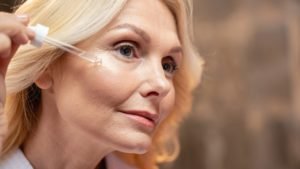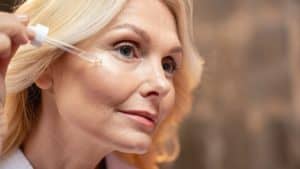Why You Should Commit to the Carry-On and Tips for Making it Easy

The world is divided into two different kinds of people: overpackers and underpackers. If you fall into the first category, don’t turn away yet! Give me a few minutes to try and convince you that there is a better way to travel.
As you might already suspect, I am an underpacker. My measure of a packing fail: Coming home with even one thing in my suitcase that I did not need, use or wear during my trip. I do fail sometimes, but not often anymore.
Here’s how to pack lighter – all lessons I learned the hard way.
Start with an Attitude Change
It helps that I don’t really care how I look. I don’t mean I would travel in ripped or dirty clothes. But I don’t need to be the glammed up center of attention. In fact, when you’re traveling, the more you can blend in, the better. You’re less likely to be targeted by pickpockets and local scammers.
Spend a little time researching what the locals wear and try to pack like that. This is the lesson I learned when I wore my electric blue winter coat to Romania, a former Soviet block country where there were two colors of winter coat: grey and black.
So if you simply must be a fashion plate, try to pare down the clothes to a capsule wardrobe of items you can mix and match and pieces that will do double duty.
Use a Packing List
These printable packing lists will give you a feel for the things you’ll need. If the list includes something you don’t think you’ll need, don’t pack it. If there is something missing, make a note on the printed sheet so you don’t forget it.
Check the Weather Forecast
I make this recommendation because I live in Chicago. We like to say, “If you don’t like the weather, wait 10 minutes.” Here, the calendar might say May, but the thermometer might say March. Or July.
So check the forecast for your destination. It will tell you whether to pack a raincoat, sunhat, shorts, or sweaters.
Start Packing Early
If you have a spare bed, room, couch or some other spot to hold the things you want to pack, start a week early and put everything on the bed that you think you might want on your trip.
Then walk away.
Come back the next day and look it over. Is there anything missing? Is there anything you think you might not need on the trip? Make adjustments accordingly.
Then walk away.
Come back the next day with the intention of making choices. If you have two pairs of pants on the bed, take away one pair. If you have four shirts, take away two. And so on, until you have cut in half the things on the bed.
Then walk away.
The next day, it’s time to pack. Start with the pieces of clothing you absolutely MUST have with you.
If you run out of suitcase before you run out of clothes to pack, you get to make a choice: Leave something else behind or pay $40 or more to check a bag.
Buy Packing Cubes
I resisted buying this travel essential for years. Now I can’t believe I ever traveled without them.
Packing cubes are flexible pouches with a brilliant zipper system. You pack them with the clothes you want to take, and zip them shut. Then – this is the brilliant part – you zip a second zipper to compress the insides flat. (Think of it like your expandable suitcase, when you open that second zipper, it gives you an extra inch or two of suitcase space. When you zip it shut, everything inside is compressed.)
As a bonus, the clothes you lay inside the packing cube are much more likely to stay wrinkle free. I don’t know why. But it’s true.
Stick with One Basic Color
When I head to a Caribbean resort, that color will be white. But most of the time, it’s black – black pants, a black skirt, a black dress. Then I add color in the tops I will wear with the pants and skirt. Finally, I pack a few scarves and funky costume jewelry to dress everything up or down and add more color.
Wear the Heavy Stuff on the Plane
There are plenty of TikTokers and travel hacker influencers who will tell you to wear layers and layers on the plane to save suitcase space. Or to pack a pillowcase with your stuff and pretend it’s a pillow, not a suitcase, so it doesn’t count as a carryon.
While that might be useful info for travelers on uber-budget airlines that charge for anything that doesn’t fit under your seat, you really don’t have to go that crazy. Just use a little common sense.
If, for example, you’re flying from Florida to Colorado, you know you’ll need your winter coat, hat, gloves, hiking boots and heavy jeans. Wear the jeans and hiking boots on the plane, stuff the hat and gloves in the coat pockets and carry the coat on the plane rather than packing it in a suitcase.
I do this anyway because I’m always chilly on a plane. I’m always surprised when I see someone boarding a flight in shorts and flip flops. I would be blue by the time I landed!
Think Layers, Not Bulk
Thin layers are always the right answer, no matter where you are. Even a Caribbean vacation requires preparing for chilly evenings or overly air-conditioned restaurants. Layers are the answer to staying warm and packing light.
Make the Best Use of Your Under-Seat Bag
Finally, remember that you get not one, but two things to carry onto the plane – a bag that goes into the overhead and a smaller bag that fits under the seat in front of you.
Don’t waste the space in that second bag!
My go-to is a roomy backpack because I travel with a lot of electronics – laptop, Kindle, phone, ear buds and all of the cords and accessories they require. But those only take up two zippered compartments. That leaves two more compartments for other things – makeup bag, an extra pair of shoes, etc.
The other thing that works for me is a big striped bag that is super flexible. I can cram a lot into it and still stuff it under the seat. The downside of that is it is heavy to carry, unlike my backpack which easily distributes the weight across my shoulders.
Practice, Practice, Practice
I know. This isn’t easy. Especially if you’ve always been an overpacker. But practice will make perfect. Try it on your next quick weekend trip. That will give you a chance to see how it feels to only pack what you’ll need for 2-3 days, how much you like being able to lift that light carry-on bag and how happy you are not worrying about whether your suitcase will show up at the other end of your flight.
Just remember to pack one more thing: a credit card. That way, if you find you truly can’t live without something for a few days, you can head to the store to buy it.
Let’s Have a Conversation:
Are you an overpacker or an underpacker? What’s your favorite packing hack? Share with us in the comment section below.





 Turn on your JavaScript to view content
Turn on your JavaScript to view content




















































































